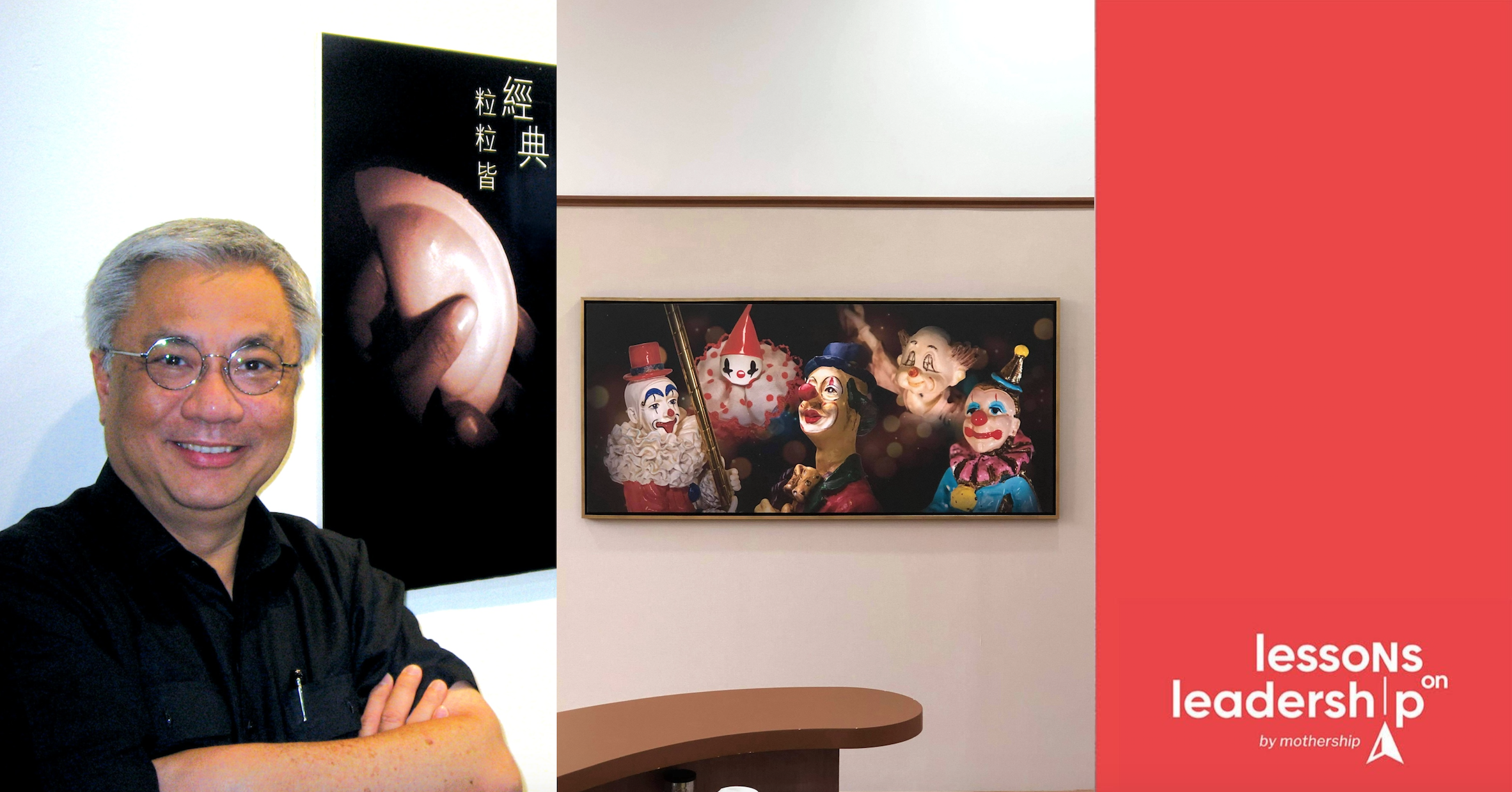Follow us on Telegram for the latest updates: https://t.me/mothershipsg
Despite selling deep fried food for half of his life, 70-year-old Han Keen Juan is still in robust health, thank you very much.
The simple answer is that of course, he doesn't eat the fried food every day — although a younger Han was very much involved in the R&D (research and development) process.
These days, however, Han has taken a backseat in the company, preferring to let the younger leaders shine.
Five clowns on the wall
By now, you must have figured out that Han is the founder and chairman of Old Chang Kee, of the ubiquitous yellow hue that has close to 100 outlets in Singapore alone.
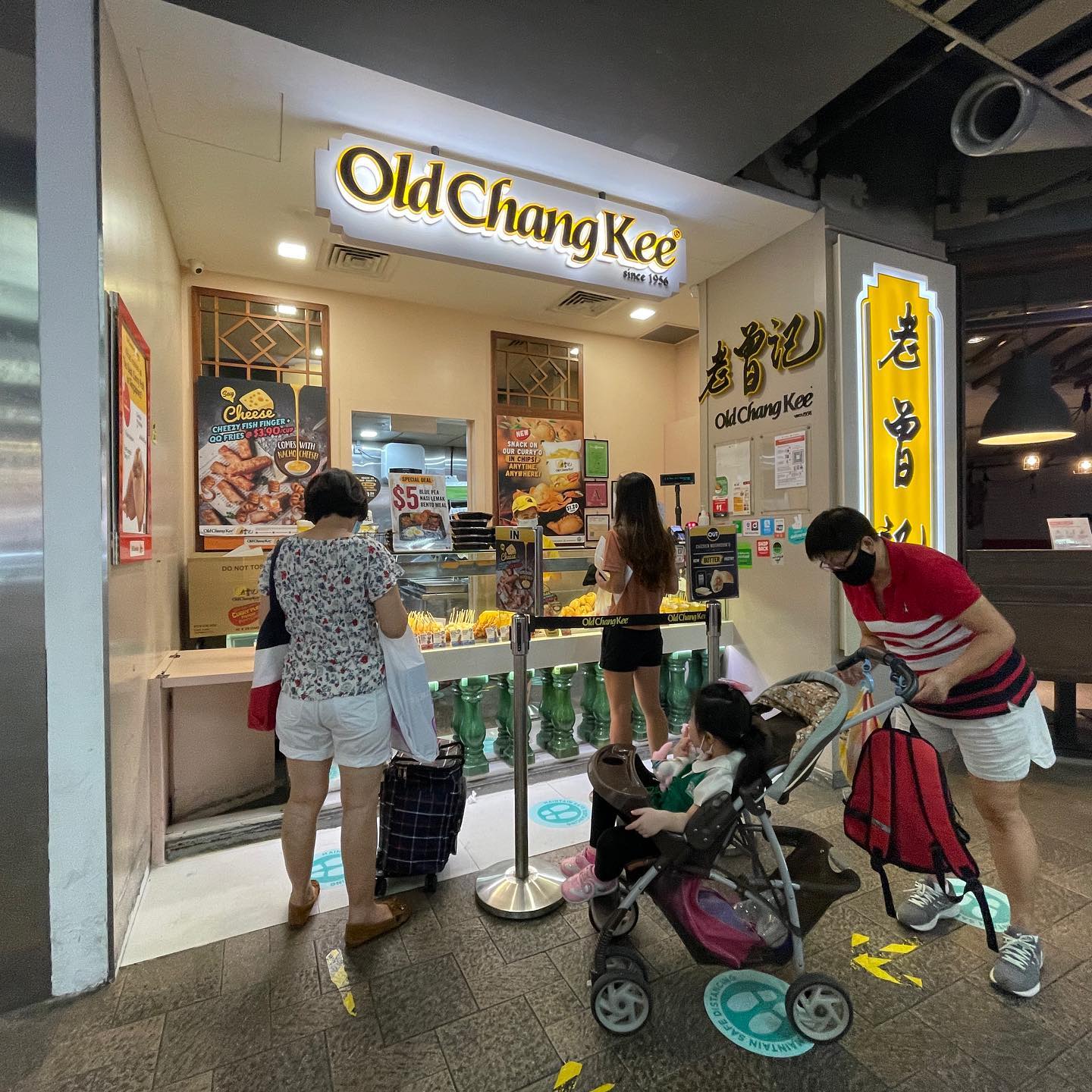 Photo via Old Chang Kee Singapore/Facebook
Photo via Old Chang Kee Singapore/Facebook
In contrast to the grease and swelter of the outlets, Han's office — nestled in the company's headquarters in industrial Woodlands — is subdued and polished, but something quite unexpected sticks out: a sizeable landscape painting of five clowns hangs in the reception area.
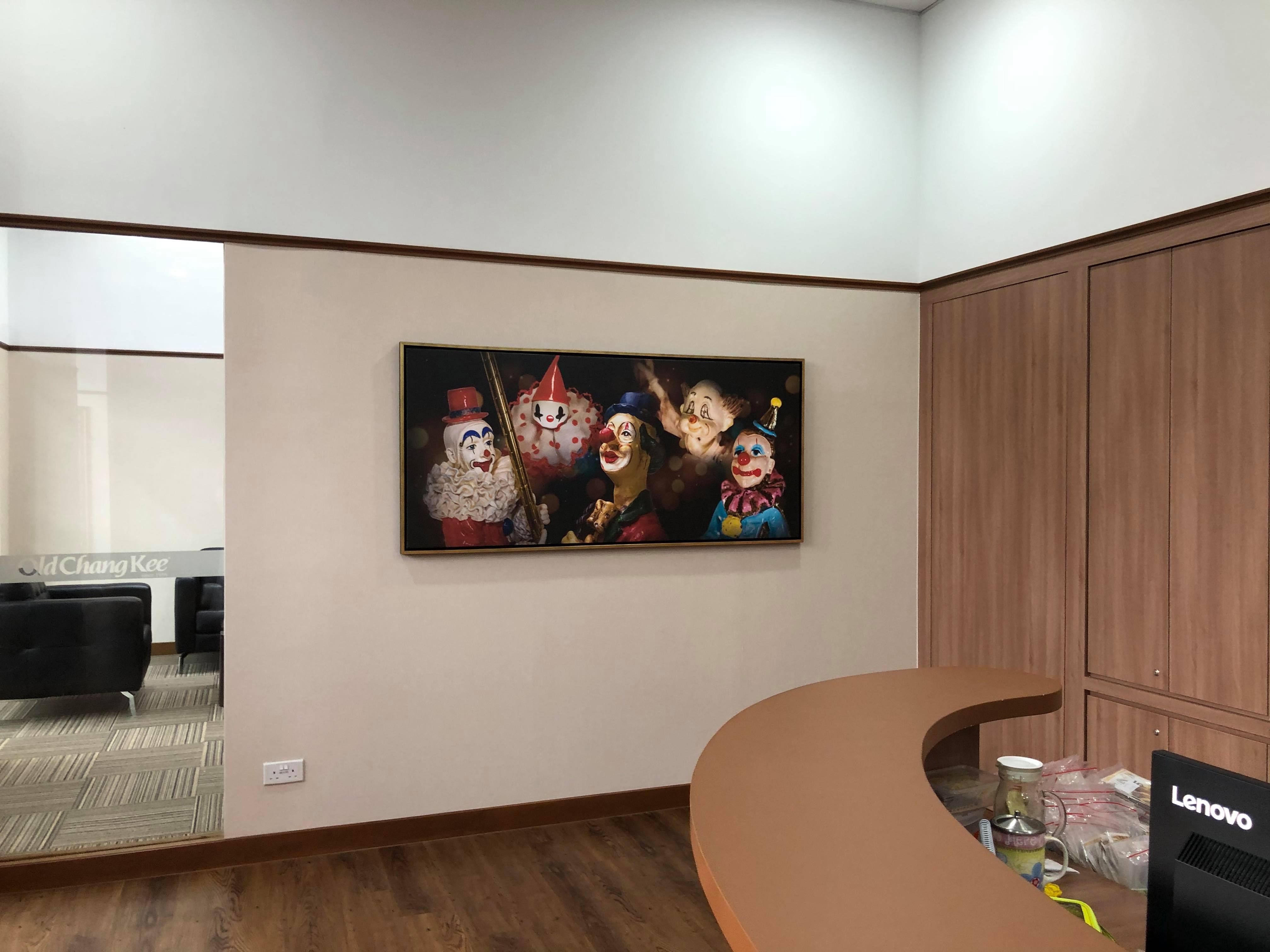 Photo by Mandy How
Photo by Mandy How
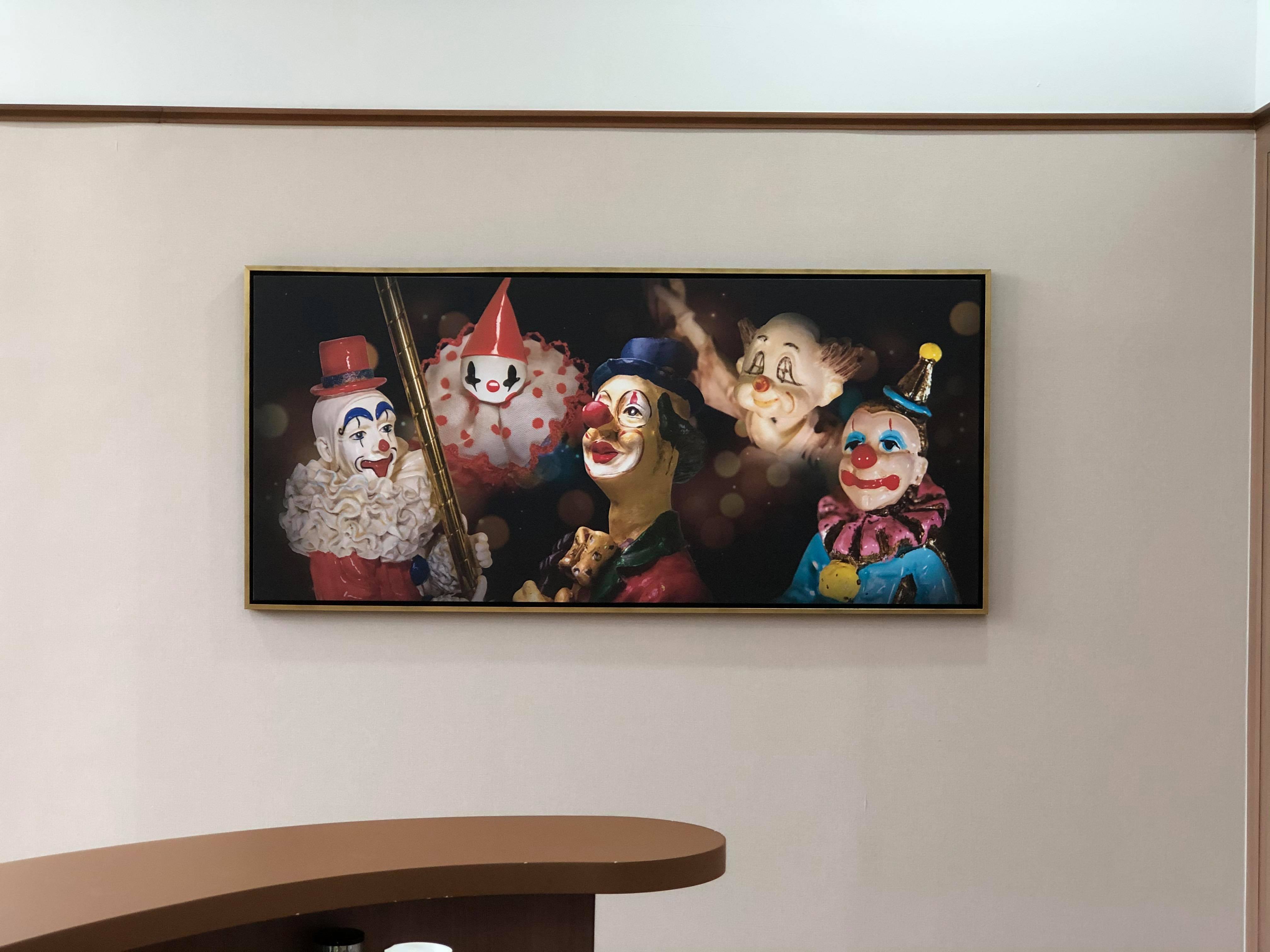 Photo by Mandy How
Photo by Mandy How
In the chairman's room, several more jesters sit on his shelves and desk.
Although not originally in my list of questions for him, I asked why the penchant for clowns, especially when they were juxtaposed with calligraphy works and a historical montage of the company.
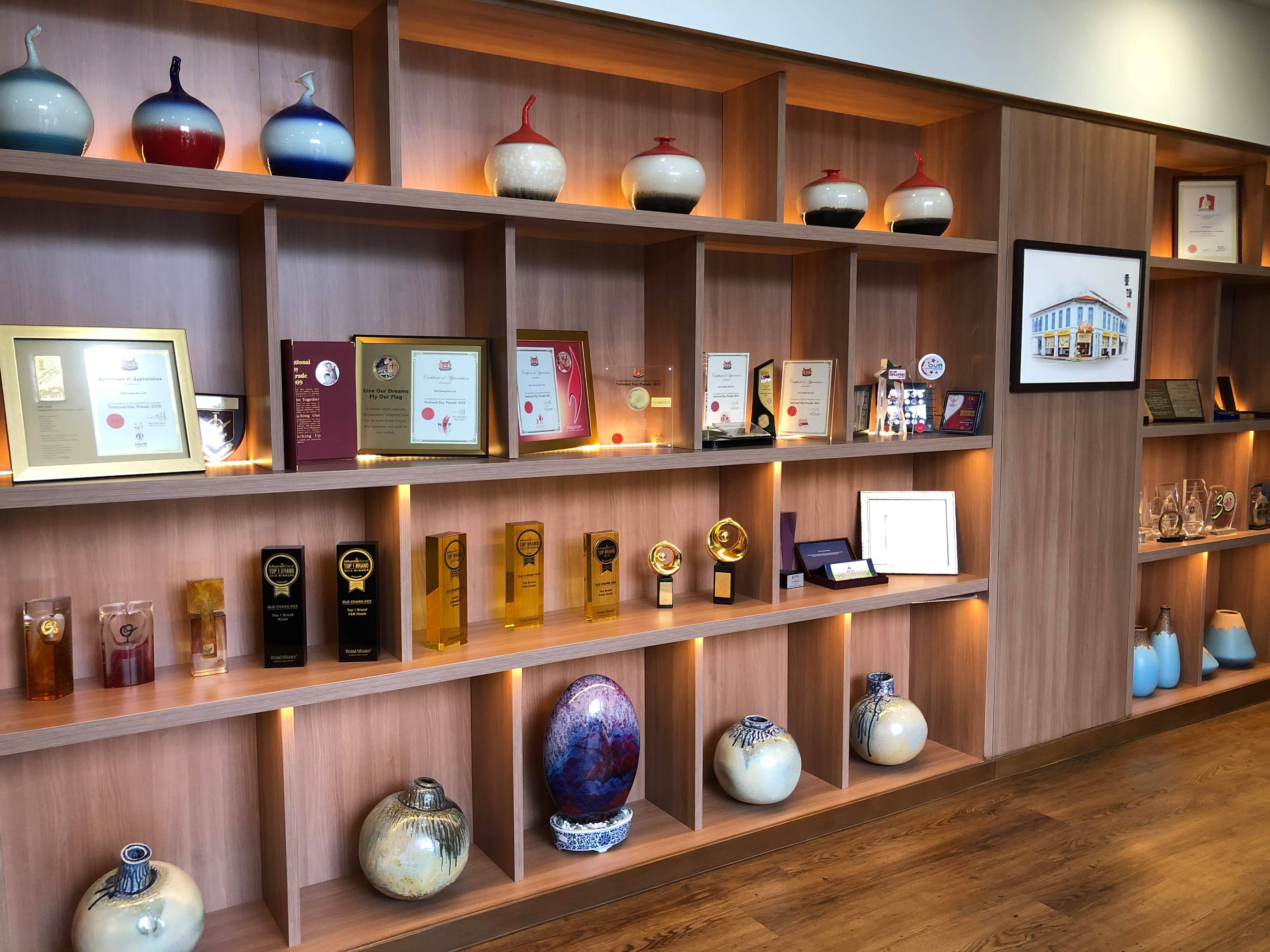 Photo by Mandy How
Photo by Mandy How
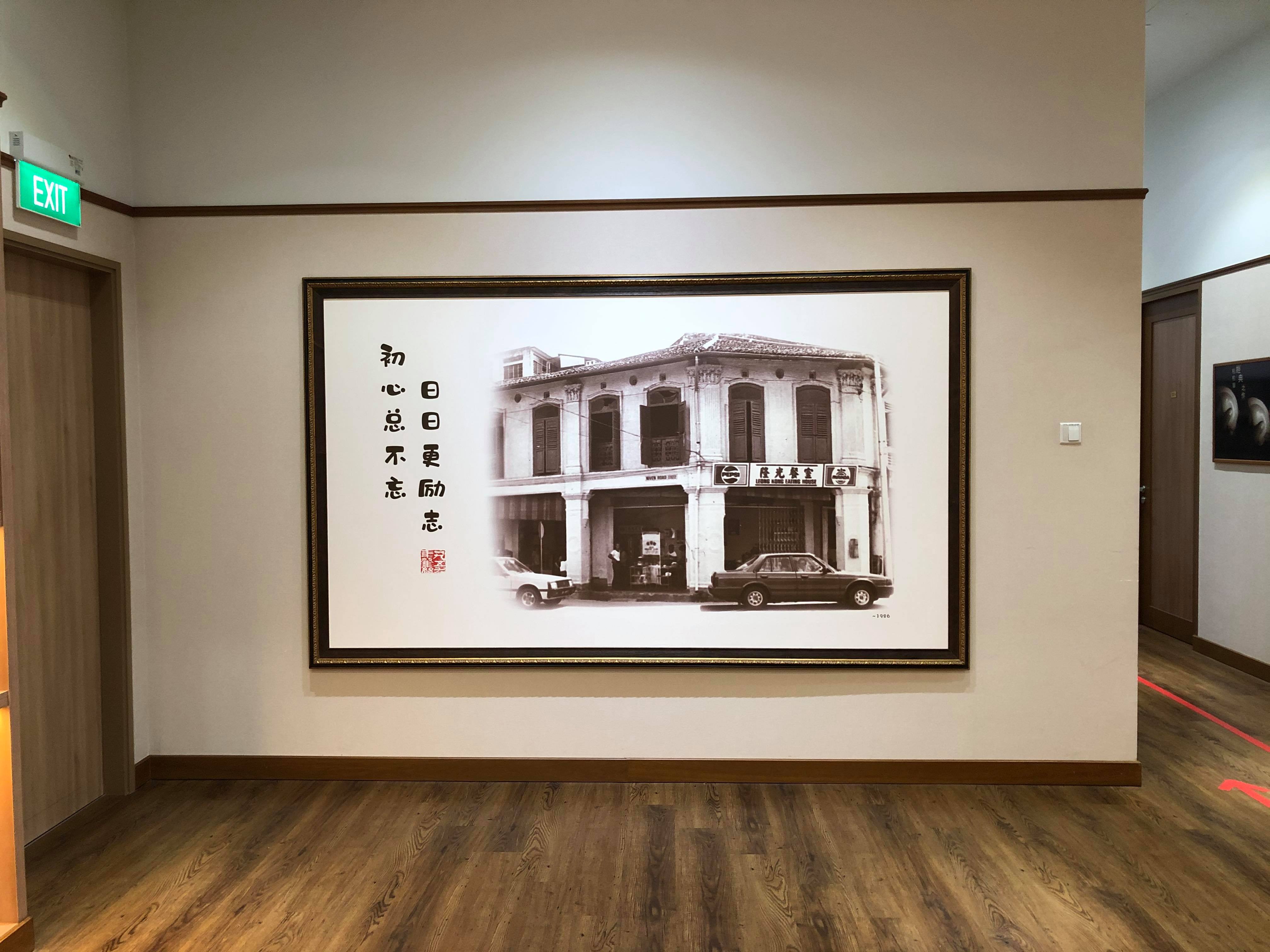 Photo by Mandy How
Photo by Mandy How
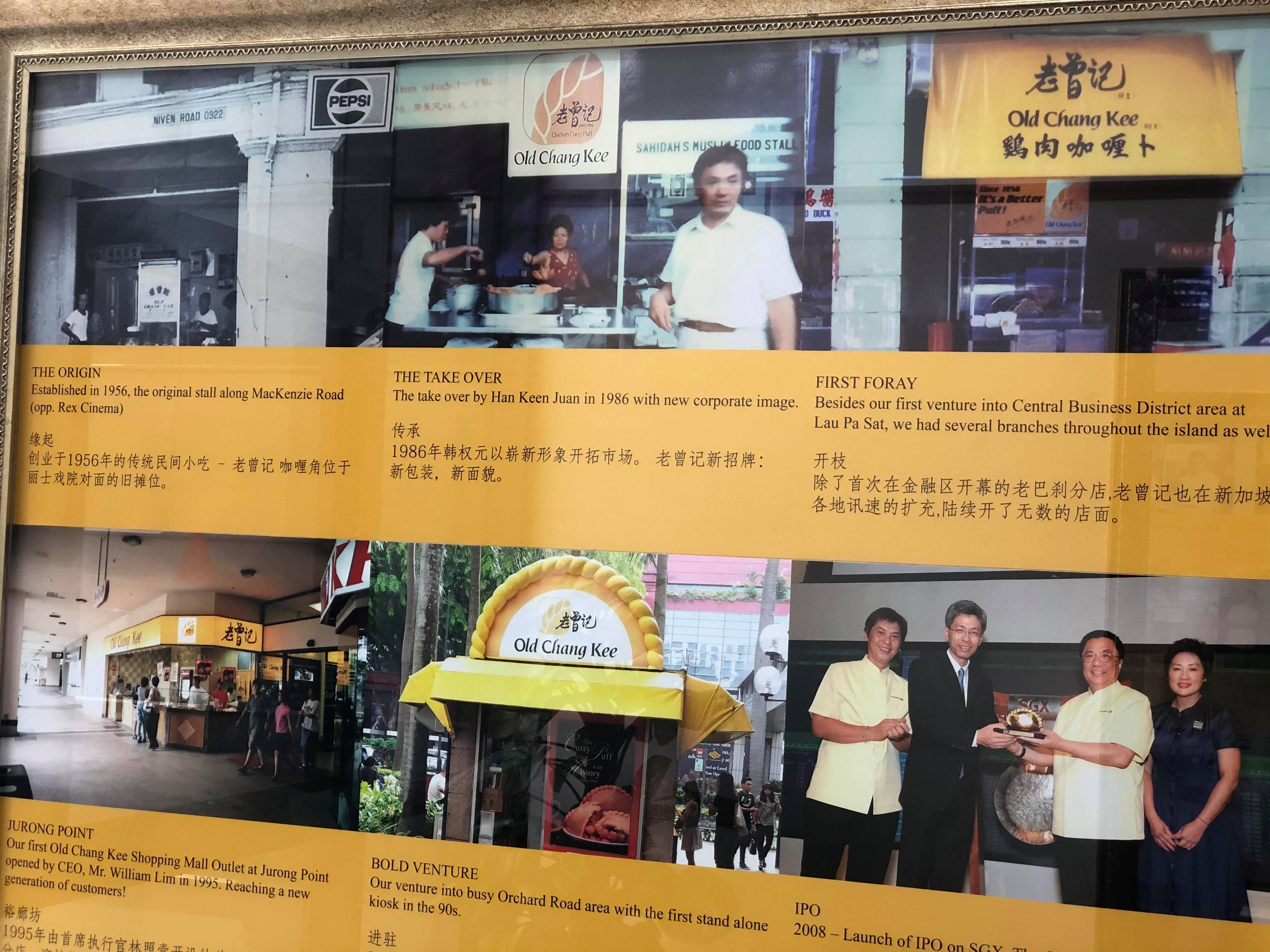 Photo by Mandy How
Photo by Mandy How
He recounts in a mix of English and Mandarin, with eyebrows unmoved,
"When I left the corporate world, and my staff were sending me off, they missed me a lot and said that I was the best leader — the best, not the strictest. They gave me a drawing. It was of five clowns. They pointed to the one in the middle and told me, 'YOU ARE THE BIGGEST CLOWN!' That's why I'm so fond of clowns now."
Shunning the corporate world for entrepreneurship is a narrative prevalent to this day, and clearly one that applies to Han as well.
In 1986, the then-36-year-old quit his cushy job in an MNC and used his savings to buy over Old Chang Kee, forsaking a S$4,000 monthly salary (equivalent to about S$7,000 today, according to MAS inflation calendar) for a meagre allowance to allow the business to survive.
 Photo courtesy of Old Chang Kee
Photo courtesy of Old Chang Kee
 Photo courtesy of Old Chang Kee
Photo courtesy of Old Chang Kee
It was a marked difference for him: from having executives and a secretary at his beck and call, Han was "downgraded" to squatting by the road to try to talk to an employee who was, for reasons not elaborated on, not too enthused to hear him speak.
But the septuagenarian also admitted that as someone who comes from a Chinese-educated background, rising further through the ranks in an MNC would be challenging in that era — hence the leap of faith to make something of himself as a businessman.
A leap that was ultimately supported by his wife and family.
Han started Old Chang Kee in his 30s as the bao ga liao (doing everything) employee — manning the stall, delivering, cleaning, closing — he had to do them all.
One person who got him through the daily toil? Lee Kuan Yew, whom Han calls his "idol".
"When I started out at Rex selling curry puffs, I ran into a lot of problems that I never saw coming. [...] This person didn't want to take stock, another person refused to OT, someone else didn't want to change the oil, but Prime Minister Lee had more problems than me! He had to deal with this party, that opposition, the people, confirm even more jialat."
And so Han took heart in the fact that he was, objectively, facing much more manageable issues, on a much smaller scale.
Covid-19 and being quick on their feet
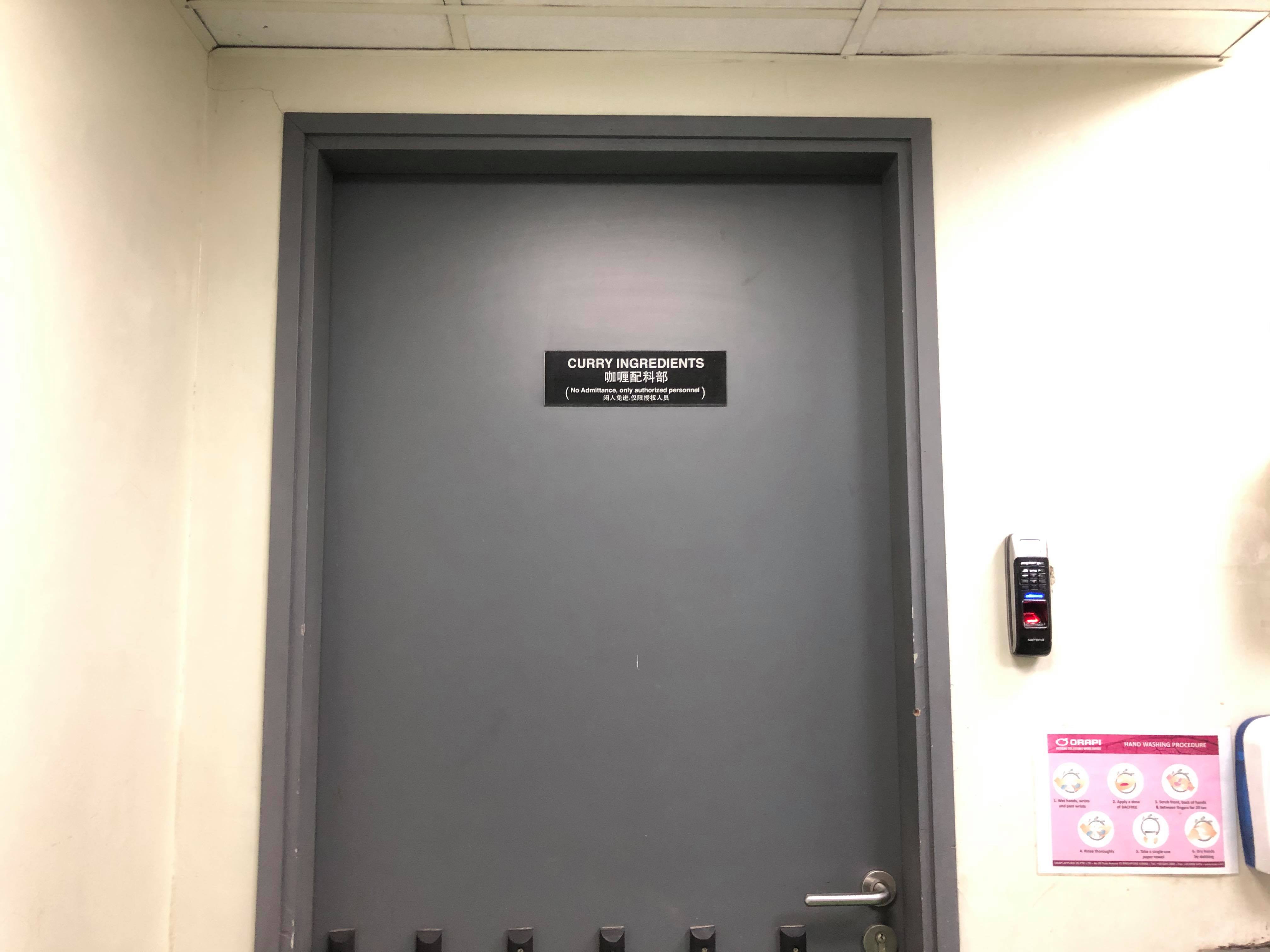 Very Willy Wonka-esque. Photo by Mandy How.
Very Willy Wonka-esque. Photo by Mandy How.
Fast forward to 2021, where a pandemic has ravaged the F&B industry worldwide, a quick snoop into the Old Chang Kee's financials reveals something quite interesting: while revenue has fallen 14.4 per cent for 2021, profit has grown about 10 times, to S$8.7 million.
When I brought this up, the chairman jokingly shushes me, but later reveals that bonuses and dividends have been paid out accordingly.
Old Chang Kee has not retrenched any of its workers due to the economic fallout so far.
In fact, Han surprises me by saying that he welcomes the ever-changing restrictions imposed by the government, as that enables him to observe how his staff adapts to the situation.
"A lot of adjustments. To many bosses, it may feel irritating, unhappy, I find value," he laughs. "Test your staff mah, their adaptability. Let them try."
Nonetheless, Han acknowledges that the company is "lucky" in the sense that it was already functioning as a takeaway concept long before the pandemic, so it required little on their part to rewire consumers' mindsets.
In the past year, the kiosks have also expanded their offerings beyond snacks and finger food, to churn out proper meals like nasi lemak and mee siam.
Working with family
Halfway through our hour-long conversation, I learn of another trait that made Han a hard-nosed businessman.
I had asked about his management principles when it comes to his niece and nephew, both of whom hold high-ranking positions in the company.
Nephew William Lim sits on the board as its Executive Director and CEO, while niece Chow Hui Shien is also an Executive Director, as well as Deputy CEO.
Han looks at me wryly but bursts out laughing a second later, calling it a "cute" question.
The short answer is, no, there are no biases towards his family members. In fact, if any biases were to exist, it exists against them.
Han says that he expects more from Lim and Chow, as their work ethics and capabilities are a reflection of him.
He partly jests,
"I tell you, he (CEO Lim) will say, 'Mr Han, he's very forgiving towards his staff if they do something wrong. If we family members don't perform, he will be sulky for two weeks."
But the chairman also believes that this puts the other staff at ease, knowing that those related to him do not get preferential treatment.
Lim and Chow currently oversee most of the operations, while Han has relegated himself to a support role, calling himself a goalkeeper.
"I just have to make sure that the others don't score against us," he joked.
When I asked if he had a hard time handing the reins over, Han doesn't directly answer my question. Instead, he told me that "small-time bosses" like him are a trouble to deal with.
"We know everything from practically zero. So [we] like to poke [our] fingers in the pie, and spoil every pie", he said.
What Han meant is that founders like him, who learnt everything from scratch, are sometimes wont to interfere with the various processes in the company, from R&D to marketing.
Fortunately, this is not a leadership style that Han subscribes to. After he hands a task over, Han prefers to give his employee free rein.
This laissez-faire style of leadership is very much in line with his mentality when it comes to watching his employees tackle the Covid-19 restrictions, I thought.
And while Han is quite in touch with today's platforms (he often brings up Instagram and digital media during our chat), he does indeed walk the talk of letting employees experiment within their scope, if a relatively recent campaign is anything to go by:
The chairman elaborates,
"If you want the person to excel and step up, but you're trying their hands behind their back, how are they going do that? [...] So I often tell them, as long as it's good for the company, go ahead and do it. Even if things go awry, but you set out with good intentions, [...] it's okay."
In this way, those working for him can proceed with little to no anxiety.
"If out to 10 tasks, you did well for seven, and not so well for three, I can accept it. If there are any problems, we'll face the consequences."
Three magic words: SOP
 Photo courtesy of Old Chang Kee
Photo courtesy of Old Chang Kee
However, I soon learn that the laid-back spirit does not apply to all aspects of Han's leadership.
This is especially so when it concerns the production of Old Chang Kee's curry puffs (or any of their products, it's probably safe to say).
In the kitchen, the chairman adopts a bureaucratic leadership style, selling to me the benefits of having his employees abide by a SOP (Standard Operating Procedure) during the cooking process.
His predilection for a SOP also explains why the 70-year-old has never liked the word "chef", and generally does not regard any of his kitchen staff as such.
Although a chef might bring skill, artistry, and creativity to the table, it also means that operations and outcomes in the kitchen are largely dependent on a single person, which, to Han, is not a feasible option.
A SOP, on the other hand, would mean that anyone can take the place of anyone else, without a need for years of intensive training and practice that a chef requires.
While it's not a model that can work in all settings (not fine-dining restaurants, particularly), it has proven to serve Han well.
His faithfulness in adhering to a SOP has not only bought him quality and consistency, but also a self-running system that can go on even if an employee were to leave.
"Today you're [hypothetical employee] on MC, tomorrow you're [another hypothetical employee] on leave, the production can go on. The quality is the same, the consistency is the same."
According to the chairman, Old Chang Kee's curry puffs remain good even after being left out for five hours, which, to an average glutton like myself, is the hallmark of a successful recipe.
By the end of the hour, Han has transformed into someone quite verbose and relaxed, often telling us that he hopes he hasn't "ruined our programme."
As the conversation tapers off, Han casually fills us in on how he almost became an actor some decades ago (he did actually clinch couple of small roles in TV).
But that's a story for another day.
Watch the full interview with Han on our LinkedIn exclusive:
Lessons on Leadership is a new Mothership series about the inspiring stories of Singapore’s business leaders and entrepreneurs, as well as the lessons and values we can learn from their lived experiences.
Keep a lookout for our video interview with Han on the Beyond The Glass Door video series, where host and 'recent graduate' Andrew Wong pitches ridiculous snack ideas to the chairman in a bid to land himself a job at Old Chang Kee.
Top image via Old Chang Kee and Mandy How
If you like what you read, follow us on Facebook, Instagram, Twitter and Telegram to get the latest updates.
